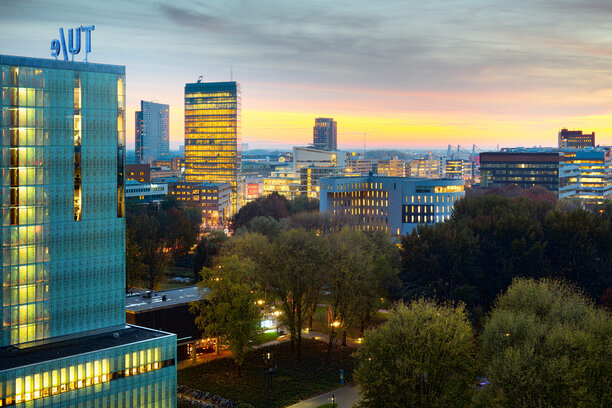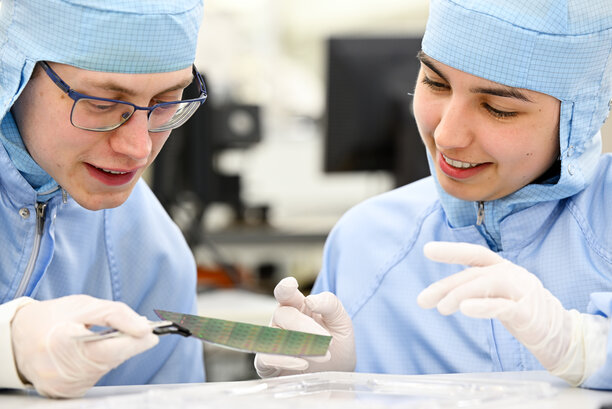‘TU/e is the beating heart of Brainport’
TU/e president Robert-Jan Smits: “Our collaboration with industrial partners moves everyone forward: researchers, students, industry and society.”
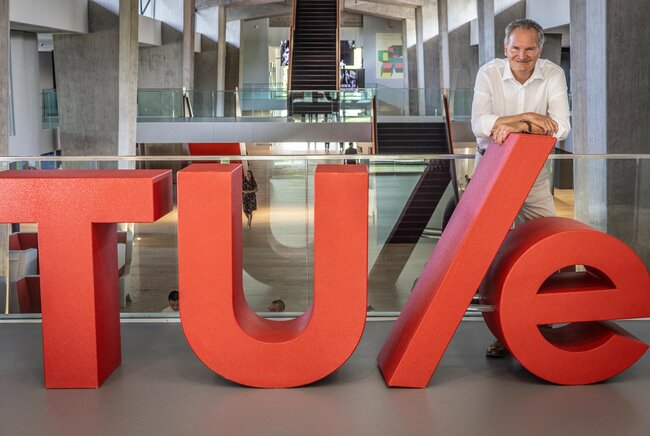
If he has to name one thing for which TU/e is known worldwide, Robert-Jan Smits never has to think for long: “Our partnerships with the high-tech industry in Brainport, which are good for our researchers and students, for industry and for society. Thanks to that collaboration, the research done here can be brought to society faster.”
Needless to say, President of the Executive Board Robert-Jan Smits is a strong supporter of TU/e’s collaboration with industrial partners. “We owe our existence to this because the university was founded 67 years ago by the industry of Eindhoven. We have continued to work closely with high-tech companies over those years; it’s in our genes and we’re good at it. A lot of universities are jealous of that. From my time in Brussels, I remember that everyone wanted to go to Eindhoven to unravel the ‘secret of Brainport’.”
Unique in collaboration
Smits sees this collaboration as TU/e’s unique selling point. “If you want to attract top talent or enter into partnerships, it is important to have a clear signature - something we are unique in. With increasing competition worldwide to attract the best people, this is more important than ever.”
For TU/e, this is undeniably the intensive collaboration with parties from the high-tech industry, such as ASML, NXP, Signify, Philips, VDL, Sioux, DAF Trucks, AccTec, Neways, ProDrive, Vanderlande and many other companies from the Brainport region.
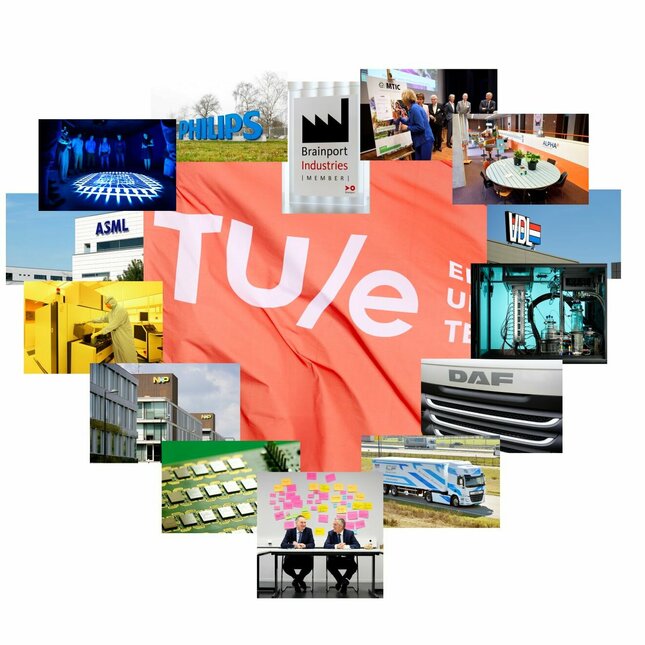
Co-publications
For years, TU/e has scored highly in the CWTS ranking, which positions universities according to research collaboration with industry on the basis of scientific co-publications. These co-publications account for about 15% of our university’s total research output.
Smits: “For years, there was a misconception that these types of publications have a lower status. But scientific research on PhD studies with industrial partners has shown that they score better than studies without companies in most respects. Other research has shown that this type of research leads to more citations.”
Out-of-the-box thinking
“The smart industry is not asking us to do the same as they do. No, they are instead asking us to think autonomously and in an out-of-the-box manner in order to come up with concepts that can help them someday. In doing so, we are not being led by the hand of industry; we have our own agenda within the beating heart of the Brainport region.”
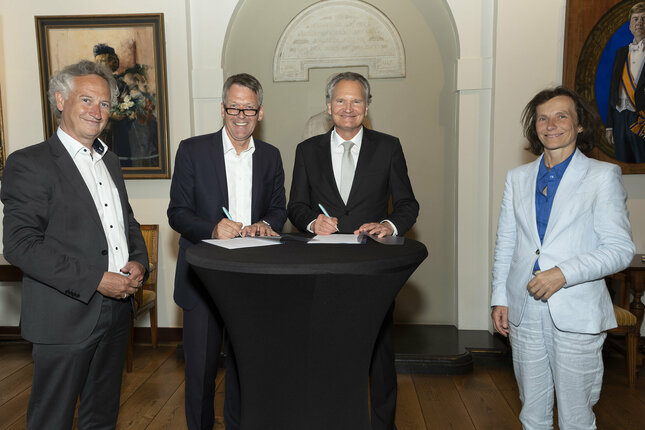
Multi-annual plans
“Our collaborations with industry are becoming more strategic and long term,” Smits says. “When I came to TU/e in 2019, a lot was being done on an ad-hoc basis. A company would ask for a PhD student and then for another one a year later. We now work with roadmaps that run for several years. We already had this with Philips and within e/MTIC, the Eindhoven MedTech Innovation Center, but we are gradually coming to multi-annual agreements with more and more large companies, such as NXP and ASML.”
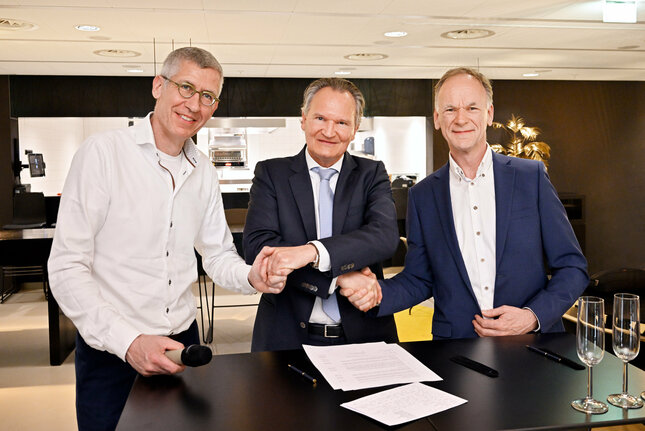
Soon, TU/e hopes to sign an agreement with ASML to lay down the arrangements for the construction of an ASML research facility on the TU/e campus. This newly constructed building will feature shared workspaces, meeting rooms, research laboratories and a state-of-the-art clean room. These will also be available to TU/e employees.
Ground rules
Clear ground rules and agreements are of great importance in partnerships between industry and the university, Smits emphasizes. Scientific research must always be independent and impartial. Ethical issues, intellectual property rights, autonomy and the right to publish must be well-regulated.
“The Netherlands Code of Conduct for Research Integrity naturally applies to our research that we do with companies,” Smits says. “We also have our own supplementary code of conduct that focuses on technical universities.”
“Of course, collaboration with industry provides money and earning capacity for the university and the companies, but there are further advantages,” Smits says. “Our students are taught by hybrid teachers from industry, providing them with the most up-to-date knowledge from which to learn. Companies provide real-world cases as assignments in our Challenge-Based Learning education. Student teams can count on help and sponsorship from companies.”
Speedier to society
“It also helps researchers to translate their amazing research and bring it to the market and to society. Examples include medical technological inventions, which TU/e startups and spin-offs such as Hable, NEMO or VivArt-X bring to the market. This is how we, as a university, contribute to solving societal issues.”
More on our strategy
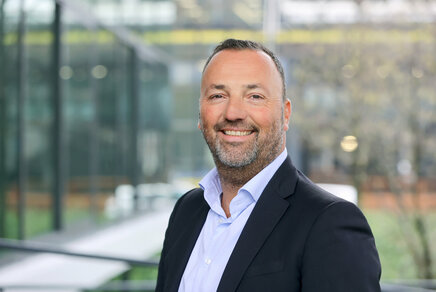

![[Translate to English:] [Translate to English:]](https://assets.w3.tue.nl/w/fileadmin/_processed_/c/f/csm_BvOF_2024_0319_AEV_license_TUe_Dirk_van_Meer_-_CORE_1__c976e259a5.jpg)
